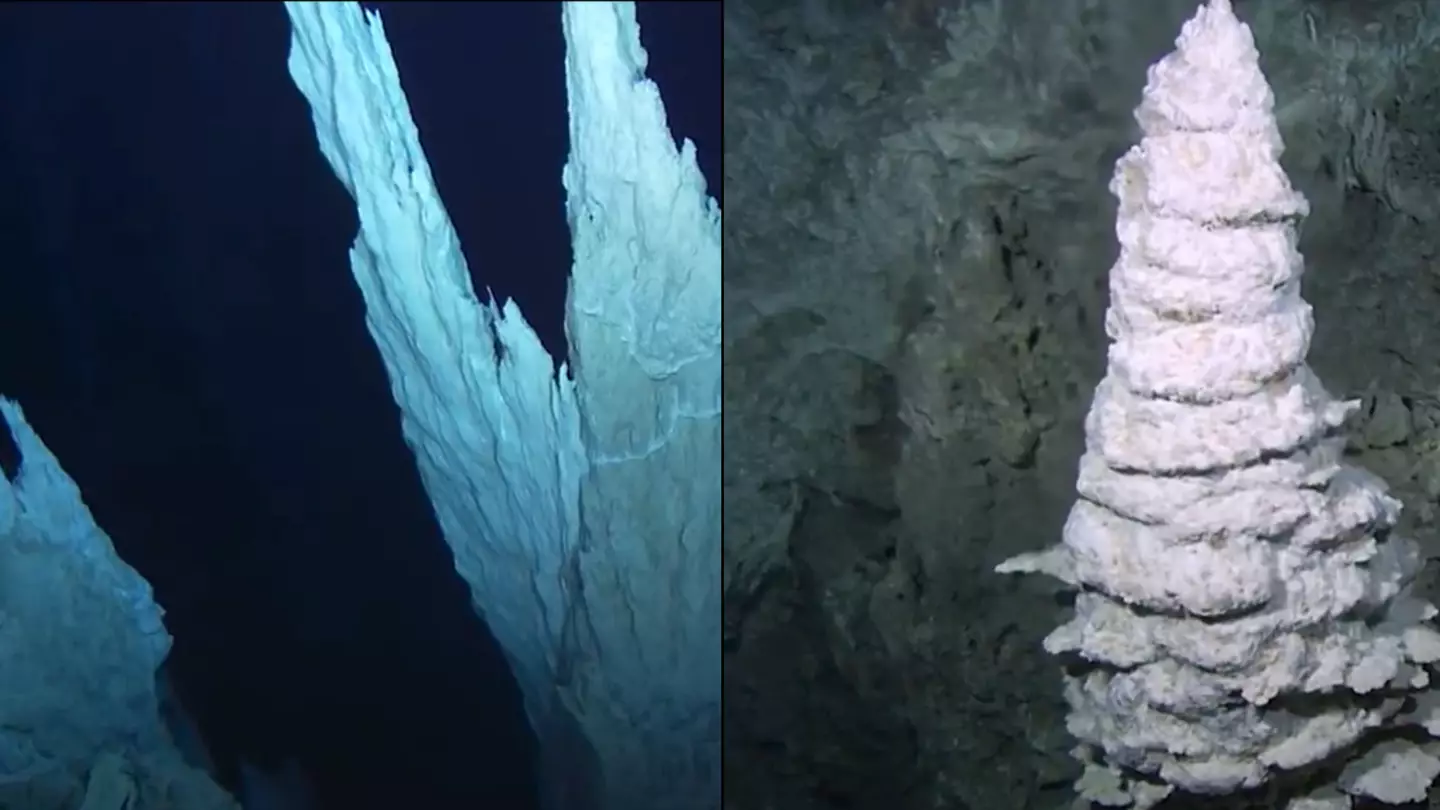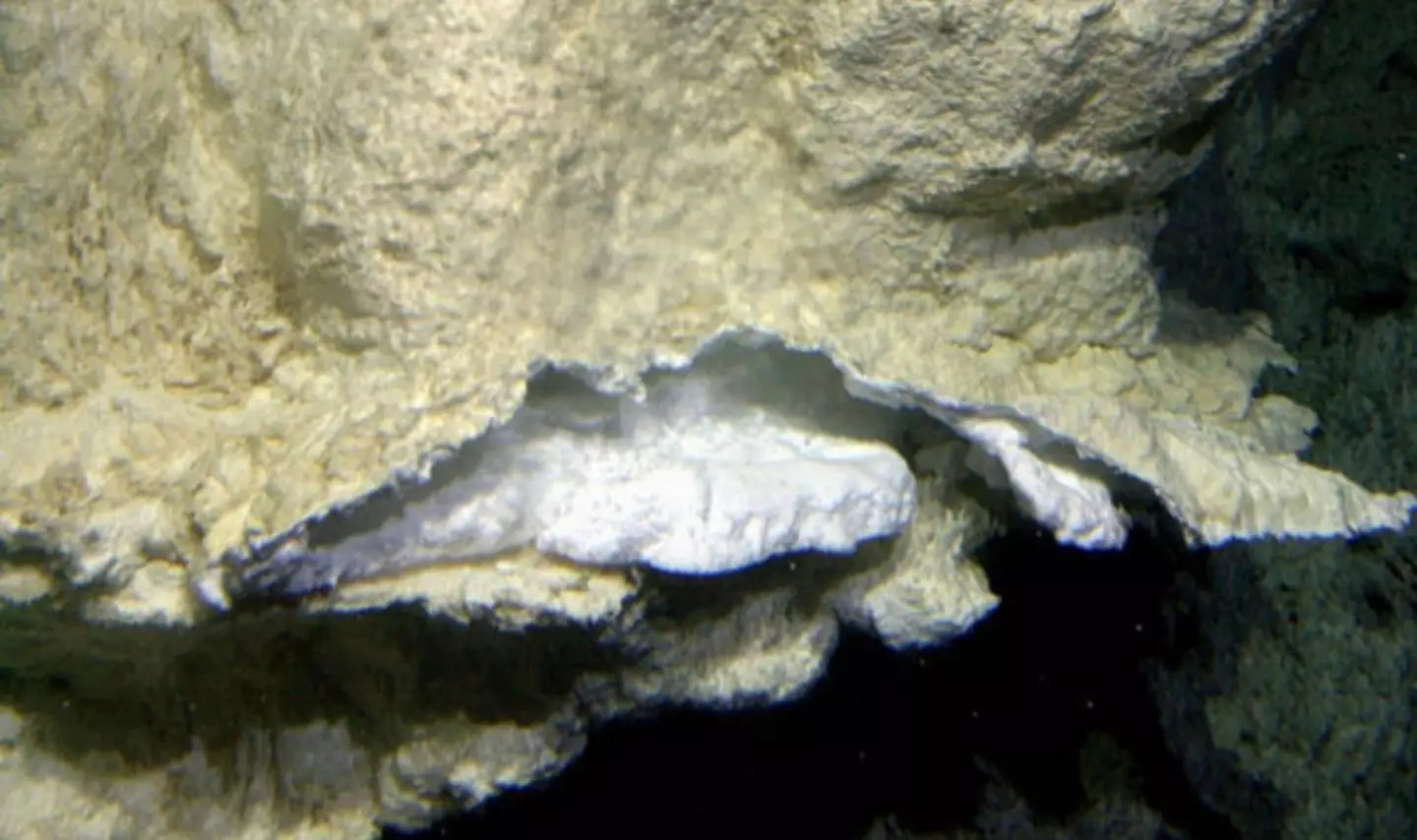
Did you know there lies a ‘Lost City’ below the waves of our world where microbial communities have been thriving for more than 120,000 years?
While scientists have never been able to verify the legendary sunken city of Atlantis, it appears they’ve at least succeeded in discovering one ancient underwater landscape.
14 years ago, experts sent rovers to investigate what they believed was a towering, rocky landscape.
Advert
The vehicles plunged more than 700 metres below the surface of the Atlantic Ocean where they came upon a hydrothermal field, later dubbed the ‘Lost City’.
This field is situated west of the Mid-Atlantic Ridge and is thought to be the longest-lived venting environment known in the ocean, reports Science Alert.
Attributes of the underwater area include ancient walls thought to be at least 120,000 years old; chimneys spewing 104 Fahrenheit gasses and a monolith, named after Poseidon, the Greek god of the sea.
Despite the harsh conditions, the Lost City plays host to an abundance of ocean-dwelling creatures.
These include snails, microbial communities and various crustaceans.
It’s thought that these beasts feed off the field’s vents, which reportedly spit out hydrogen, methane and other gasses.
.jpg)
Moreover, microbiologists also claim that animals such as crabs, shrimps and eels also inhabit the environment.
However, as there is a distinct lack of oxygen present in the Lost City, these aquatic beats are a rare find.
Scientists say that hydrothermal fields, like the one they found in the Atlantic Ocean, probably exist elsewhere.
However, the outlined find remains the only one, which remotely operated vehicles have been able to navigate to thus far.
Speaking about the ancient ecosystem, microbiologist William Brazelton told The Smithsonian in 2018: "This is an example of a type of ecosystem that could be active on Enceladus [Saturn’s moon] or Europa [Jupiter’s moon] right this second and maybe Mars in the past."
Since its discovery in 2000, there have been numerous calls to protect the site due to its importance.

However, in 2018, Poland was given the right to explore 10,000 sq km of the Mid-Atlantic Ridge for mining.
It’s thought the seabed initially garnered attraction due to it being rich in deposits of cobalt, manganese and gold, according to The Independent.
Speaking about the decision, Dr Gretchen Fruh-Green, the scientist who led the discovery said that explorers run the risk of ‘destroying’ the Lost City.
"We could destroy this place before we've understood it - before we can really appreciate the significance of these unique white towers and these very strange fluids that are coming out of the ocean floor,” she told Sky News.
“The significance of that for understanding the origin of life, for understanding processes in early Earth.
“It's our history, it's the Earth's history, and if we perturb it we don't know how fast it will recover, or what influence the perturbation would have on ocean chemistry.”
Topics: History, Science, World News, Environment
